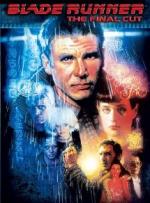|
This section contains 1,544 words (approx. 6 pages at 300 words per page) |

|
Bladerunner and Brave New World: A Comparison
Summary: Compares the Aldous Huxley novel, Brave New World and the Ridley Scott film, Bladerunner. Discusses the main theme in both works, that the survival of humanity is dependent upon its contact with the natural world.
The survival of humanity is dependent upon its contact with the natural world. This view is enforced by Aldous Huxley in his 1932 novel, Brave New World, and also Ridley Scott in his 1982 film, Bladerunner. Both are dystopic texts which predict bleak futures for humanity based on the contextual fears of their times. They suggest that advances in science and technology may eventually lead to the complete control, or even destruction of "the wild" as man tries to emulate God, and that this will have negative consequences for mankind. Both texts examine nature's influence on human behaviour, nature's influence on human interaction, and humanity's relationship with the natural world.
Brave New World and Bladerunner present to us varying views of how nature affects humanity. In the course of writing his novel, Huxley was influenced by a number of issues affecting society at the time - namely totalitarian governments, the...
|
This section contains 1,544 words (approx. 6 pages at 300 words per page) |

|


